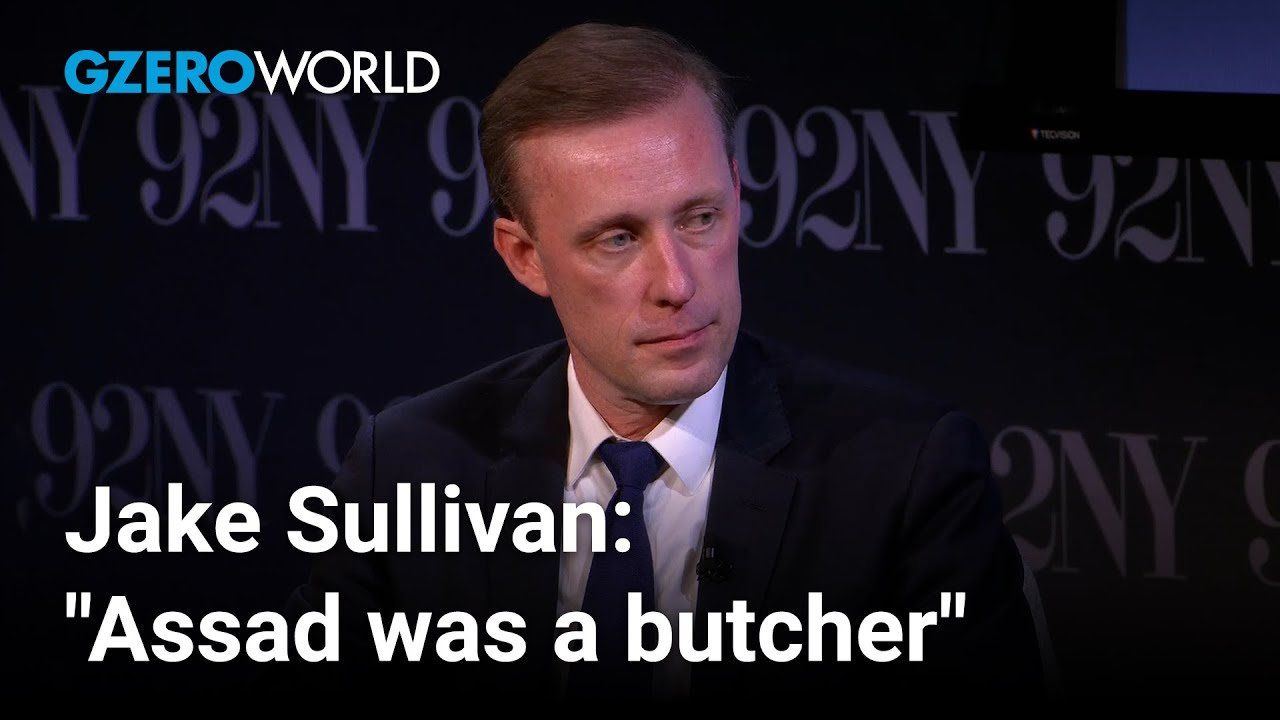Assad's fall in Syria creates both opportunities & risks, says US national security advisor Jake Sullivan

When Assad fled Syria, shocking the world, President-Elect Trump made his thoughts clear on the region. In short, he said "stay out, America." But can the world's most powerful nation afford to ignore Syria's uncertain future? This is a good news story, says US national security advisor Jake Sullivan, that could turn bad very quickly.
"The minute Damascus fell, ISIS began to look for any opportunity it could take to reconstitute, grow, spread, and ultimately recreate a platform from which to threaten the United States and Americans around the world."
Speaking on stage with Ian Bremmer at a live 92nd Street Y taping of GZERO World in New York City, Sullivan discussed what comes next for the war-ravaged nation. "Assad was a butcher, a brutally murderous dictator of his own people. Him being gone is not a bad thing—it presents an opportunity for the Syrian people to actually build a better and more inclusive future." And while that's a reason for hope, the dangers are real that bad actors could rush to fill the vacuum.
"Syria has a real and extent risk of becoming a primary hotbed of radical Islamic terrorism, but it also has a chance for stability. We must push toward opportunity while minimizing the risks."
Watch the full interview with Jake Sullivan on GZERO World with Ian Bremmer on US public television beginning Friday, December 20. Check local listings.
GZERO World with Ian Bremmer, the award-winning weekly global affairs series, airs nationwide on US public television stations (check local listings).
New digital episodes of GZERO World are released every Monday on YouTube. Don't miss an episode: subscribe to GZERO's YouTube channel and turn on notifications (🔔).